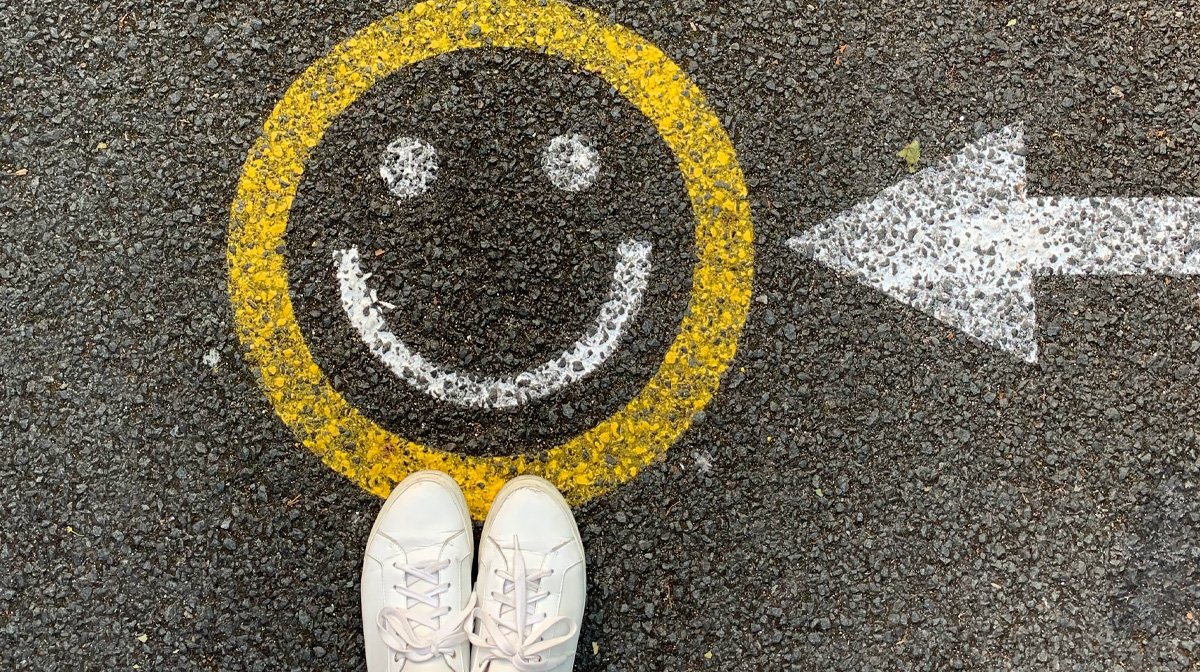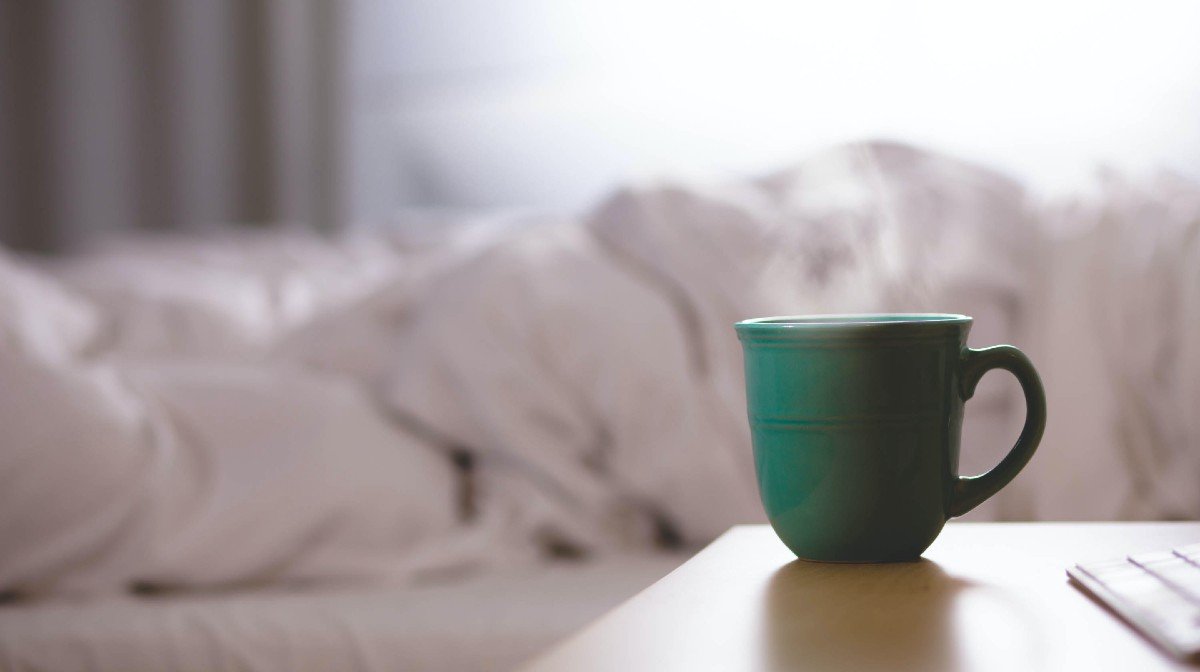
January can be a difficult month, so I asked my social media followers to ask me about their mental health worries ahead of the new year. The response was really encouraging, with questions covering sleep problems to anxiety in the gym.
'How do I change my thoughts? Sometimes they are so unhelpful, but it feels like I can’t change them'.
We have around 60,000 thoughts a day. So, trying to control all of them is impossible, not to mention exhausting.
But they’re also just thoughts, not facts. They only have power over us if we choose to hold onto them and believe them. When we do hold onto them, they naturally have a huge impact on our feelings and behaviours. Understanding this is part one of overcoming these thoughts and not getting caught up in them.
I like to break this down into three steps: catch them, challenge them, change them.
Catch them
Automatic negative thoughts (ANTS) are going to creep into our heads sometimes. It’s natural. These are your brain’s way of trying to make you aware of possible danger or struggle (a survival mechanism). The first thing to do is to recognise them as just thoughts and not facts. Take a mental note or write down the overwhelming thought that you have that currently isn’t serving you.
Challenge them
What evidence do you have to suggest that this ANT is a fact or a certainty? Often we don’t, and therefore asking yourself this question highlights your power. What evidence do you have to support this belief you have about yourself? A previous situation or comment? How similar or different is this current situation? Is there a way you could be wrong about the negative perspective you have?
If it is true, how could you help yourself to make this situation less stressful? Do you need to get more support? Do you need to prepare better? Do you need to work differently? What behaviour change will support you so this ANT won’t always be on your mind?
Change them
This is where we try to accept that the thought is there but reframe it to a more rational and realistic thought. If you can change your perspective on what you are thinking, using your “challenge” questions, there is a greater chance that you will come away from the situation feeling more at ease.
Here’s an example of how to use this 3-step process:ANT: “I can’t go to the gym alone. I’m too anxious, and everyone will look at me like I’m out of my depth.”
Catch it: I am telling myself I’m not good enough to go to the gym.
Challenge it: Why do I think I’m not good enough? What does “not good enough” mean? What gives someone the “right” to go to the gym? How would I look at someone in the gym if they were simply working out alone and trying to exercise? Where have these thoughts come from? What could I do to help myself feel more comfortable?
Change it: Flip the perspective using your responses from your “challenge it” questions.
Implement new actions and behaviours to help you feel more comfortable (eg get a personal trainer, find a structured plan to fo llow, wear clothes that you feel confident in, listen to a playlist that gets you in the mood, or find a new way to exercise that you enjoy more than the gym.
There are always ways around things — it’s just about trying to see things a little differently.
For a boost of dopamine...
Dopamine Menus: How to Be Happy and Dopamenu Examples
A to-do list that brings you joy.
'What is the best way to overcome anxiety about going to the gym? I’ve been going for 3 years now and still struggle'.
Firstly, it’s important to know that you are not alone in this. Gym anxiety is a huge struggle for many, but it can be overcome.
The first question to ask yourself is: “What am I actually anxious about?” Once you figure out the fear, it makes the next part of the process easier. At this point, the “catch it, challenge it, change it” approach is also very effective.
However, noting that if it is to do with a lack of understanding or ability, then engaging with gym staff or a personal trainer may be the best thing for you. Having support, educational content, a structured programme and accountability can massively change your perspective of the gym and what you get out of it (both mentally and physically).
Once you have figured this out, it’s all about exposure. The more you expose yourself to a situation, the more comfortable you’ll become. So even when you feel anxious, you’ll know that feelings don’t have to dictate actions.
Spend a little less time holding onto the feelings or expecting the feelings to leave. Instead, spend more time putting a plan in place and taking action. Then, watch what happens.
There are so many things we “should be doing”, but it’s so exhausting. What is the best way to approach this feeling?
There are two things to consider here...One: your definition of “should”. When you choose to label tasks as things you “should” be doing, you remove the idea that you actually have control over what you do. Who has decided these things are absolutely necessary? If so, why are they necessary? Unless it’s for survival, everything else can be looked at as a choice.
Often our “shoulds” are just things we feel we have to do to please others or show a certain version of ourselves. While it can be hard to remove these tasks from our routine, it is possible and may help you to feel less overwhelmed.
Each day, try and write a to-do list with your tasks in order of priority. Aim to get 3-5 of these done (the top of your list) and assume the others are just there to do if you have time and still want to — but without the expectation of having to do them.
Two: change your perspective. Life is extremely busy and often incredibly overwhelming with activities to do, relationships to uphold, chores to complete... however, when you choose to approach them without enthusiasm, it can affect the energy you put into them.
With this in mind, notice your words and approach to these things. Everything we do in life provides us with opportunities for gratitude. Changing our language from “I should” or “I have to” to “I get to” can be a simple but effective way to remind yourself you have control.
Looking for more tips?
How To Overcome Gym Anxiety: 5 Tips For The Gymtimidation
Try out these tips next time just the thought of the gym makes you sweat
'My sleep is really poor, even with working out 4 times per week. How do I deal with this?'
While exercise is one way to help improve sleep quality, it’s only one of many important factors to consider. Sleep requires the body to feel relaxed and in a rested state. Have you put mechanisms in place to ensure your body and mind feel like this?
Many things impact our ability to relax, but a few things to consider more carefully are environment, caffeine intake, and digital exposure.
Environment
You sleep better when your bedroom is optimised for light, noise, temperature, and comfort. At night when it’s dark, your brain produces melatonin, a hormone that induces feelings of sleepiness and relaxation. However, exposure to artificial light in the evening can disturb this process — known as the circadian rhythm — and delay how long it takes to fall asleep.
Caffeine
As much as an afternoon cup of coffee may feel extremely tempting (or necessary), it’s very likely to have an impact on your nighttime sleep. Caffeine consumption can not only make it difficult to fall asleep but can also disrupt sleep. It can also reduce the amount of deep, slow-wave sleep you get, a critical stage that helps you to feel refreshed the next day.
When consuming caffeine, take into consideration that it has a half-life (the amount of time it takes for your body to metabolise and eliminate half the dose) of between 2-12 hours. A little bit of forward thinking and fast math might be a good idea if your sleep is struggling.
For more information on sleep, I highly recommend Matthew Walker’s “Why We Sleep”. It provides a great insight into the science of sleep and the impact it can have on the brain.
Digital exposure
We all know that too much digital exposure probably isn’t the healthiest thing for the mind. But spending too much time on your phone at night can have a drastic effect on sleep by suppressing melatonin. By making your bedroom a device-free space, or even turning on nighttime mode, you will give yourself a better chance of getting a better night’s sleep.

Take home message
Our problems can often feel very isolating and personal, but the truth is we all share many of the same struggles. The real problem is we just don’t talk about them enough.
By sharing our worries, we can also share how we deal with them, see different perspectives on challenges, and add to our personal “wellbeing toolkits”
READ THESE NEXT:

Here's Why Exercise Makes You Feel So Good
Give us those endorphins.

Mental Health Helplines
Remember, it's alright not to feel alright sometimes. If you need to talk, here are some free contacts you can get in touch with.

These Female PTs Will Inspire You To Chase Your Goals
"There needs to be more focus on women's health in the industry."

Related Articles








